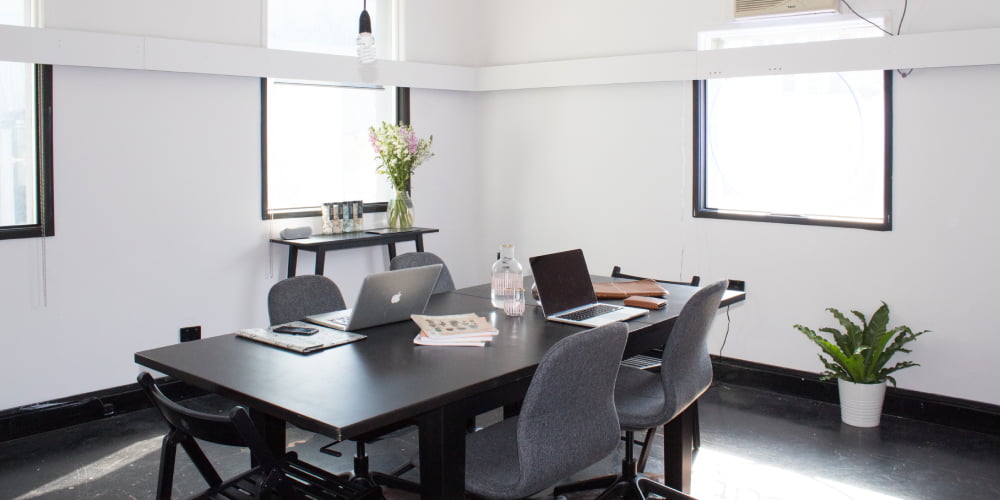OFFSHORING IN
E-COMMERCE
E-COMMERCE
In-House vs. Outsourced Comparison
Outsourcing Models: Which is Right for your Business?

In the earlier years, outsourcing and offshoring were mainly used by organisations as a means to cut down business expenses. It developed and evolved over the years to help organisations bridge internal gaps despite the distance.
Businesses, these days. choose from different outsourcing models to suit their business needs. These models vary from one another to meet each organisation’s demands. This helps businesses stay competitive in this interconnected world. It became a means to diversify a company’s workforce and provided organisations with the opportunity to expand internationally.
Different Outsourcing Models

Freelancing
This approach to outsourcing involves an independent contractor called a Freelancer. Freelancers are free agents in the outsourcing and offshoring industry, often operating from home. These home-based operators work directly with clients and are often hired to finish specific grunt work and projects within a definite time frame.
Start-ups and small businesses commonly use this model. It offers friendlier budget quotations compared to other models, allowing entrepreneurs to allocate their resources to other productive business activities. Another upside of investing in this outsourcing model is the number of platforms available to help businesspeople find that perfect fit for their businesses.
The main downside of freelancing is landing a professional with the right skills and attitude as there are many to choose from. The goal is to ensure the outsourced services are delivered correctly and on time.
Working relationships between freelancers and clients vary. In most cases, clients have little to no control over the completion of tasks. In addition to that, not all freelancing jobs are accomplished by the contractor business owners talked to. Some freelancers hire other workers to do the grunt work for them, breaching client-contractor privacy agreement.
Pro:
- Hiring freelancers are the most affordable outsourcing model
- Various platforms are available to help it easier for entrepreneurs to find home-based contractors
- Contracts can vary from full-time, project, or contractual basis
Con:
- Communication problems can occur
- Finding professionals with great work ethics are hard to come-by
- The tasks can be completed by other freelancers the contractual worker may have hired

Project-Basis
This model is centred on providing deliverables on a project basis, allowing companies to focus their resources to important core processes. Projects outsourced can vary from IT projects, marketing campaigns, data entry, and even tax services. Contracts can also vary depending on the frequency of projects.
This model is perfect for companies completing projects that require the advanced skills and knowledge of experts in a particular industry. A great example of a specialised agency is an accounting firm. Such agencies offer a variety of services that businesses can acquire under different terms.
Pro:
- Convenient for time-sensitive projects
- Projects are completed by experts
Con:
- Project-basis outsourcing can be costly
- Delays are to be expected at times
Business Process Outsourcing
The Business Process Outsourcing (BPO) offshoring model offers a large variety for organisations looking into expanding their offshoring operations depending on the company. A few offer all types of BPO outsourcing: seat leasing, private office space, and payroll services.
1. Seat Leasing
Seat leasing is quite similar to freelancing except you hire staff full-time and employ them through a third-party provider. This type of outsourcing model offers security from the hiring party.
It’s a low-risk option and offers organisations to start with a very small team or a single employee, allowing employers or managers to train their staff, build their processes, set their KPIs, and such.
Pro:
- The most cost-effective business model
- Full-Time dedicated personnel for 40 hours per week
- Full control of the personnel and their tasks
- Shared working space

2. Private Office Space
Numerous BPO companies offer private office space leases. It provides absolute security and strict access to the client’s personnel. It gives clients the freedom to build and brand their own space their way. It also offers a way for organisations to build their values and work ethic if their offshore staff.
Private office spaces can accommodate teams from a minimum of 5 staff and larger, offering clients the liberty to grow their staff at their own pace.
Pro:
- The easiest way to build an office in the Philippines
- Absolute security and confidentiality
- Ranging from 5 seats to 500+ seats
- Extreme flexibility to scale
- Liberty to brand and develop personal space
3. Payroll Service
Select companies offer this type of outsourcing service. It’s the best investment for businesses that already have remote workers but don’t have enough time to provide their staff with local mandatory requirements.
This service guarantee that remote staff receive their compensation, entitled to their local social security and health service, and compliant with the country’s tax and labour code regulations. Secure workers and provide them with better opportunities.
Payroll services:
- SSS, Pag-Ibig, & Philhealth contributions
- BIR Tax payment
- Compliance to Philippine Labour Code
- Includes 13th-month payment
- Full HR and online payroll services
These types of BPO offshoring model offers flexibility to cater to specific organisation needs. It also provides the ultimate guarantee of having recruiters go through a list of candidates and ensuring clients select through the best of best candidates only.
Pro:
- Guaranteed list of qualified candidates
- Flexible model based on company requirements
Con:
- Not all BPO establishments offer transparent pricing
Build, Operate, and Transfer
This business model is offered only by specific companies. It’s a model wherein organisations start offshoring staff with BPO companies then later set their own office here in the Philippines.
Such companies endorse clients to locals who can help them handle their incorporation and offer them the freedom to start their own business in the country.
Pro:
- Get started with staff lease
- Grow and build a team to start incorporation offshore
- Receive expert advice on setting up a business in the Philippines
- Cost-efficient for staff over 30
- Flexible in expansion
Con:
- Offshore operation success is guaranteed by working with local Managers
- High initial cost to cover business expenditures
These are the business outsourcing models most organisations use to suit their flexible requirements. The objective is to find the best outsourcing model fit for your business to increase the success rate of your offshoring venture in countries like the Philippines.

